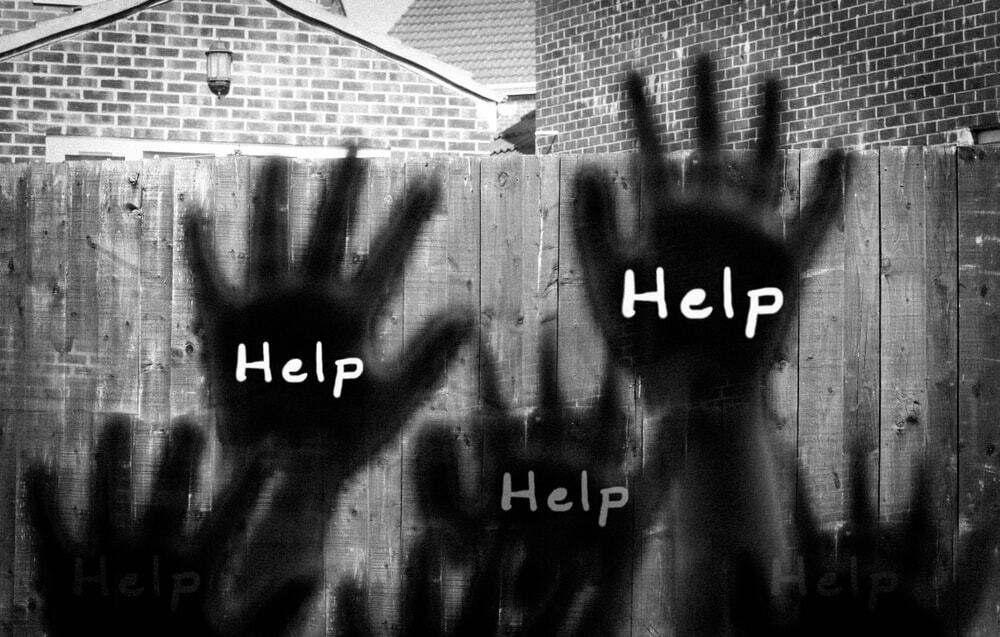
Updated December 29. 2025
Can stress make you physically ill? The answer is yes. This article is for anyone experiencing ongoing stress and wondering about its impact on physical health. Understanding the link between stress and physical illness is crucial for taking control of your health. Chronic stress refers to a consistent sense of feeling pressured and overwhelmed over a long period. The endocrine system is responsible for hormone production and regulation, while the immune system defends the body against illness and infection.
Stress triggers the release of hormones like cortisol and adrenaline, which play a crucial role in the body’s fight-or-flight response. The fight-or-flight response is the body’s automatic reaction to perceived danger, preparing you to either confront or escape the threat. These hormones influence both the immune system and the endocrine system, affecting how the body responds to threats and maintains balance. Chronic stress, however, can weaken the body’s ability to maintain effective immune responses by causing hormonal imbalances that impair immune cell production and function, ultimately increasing vulnerability to illness.
Summary: Can Stress Make You Physically Ill?
Yes, chronic stress can contribute to a wide range of physical illnesses by disrupting the body’s normal functions. Prolonged stress affects hormone levels, weakens the immune system, and increases the risk of developing conditions such as heart disease, high blood pressure, digestive disorders, and more.
Exploring the Possible Causes of Many Illnesses
For more than 25 years I’ve been deeply influenced by the work of Dr. Bruce Lipton and Gregg Braden. While some critics may call their work “woo-woo” or metaphysical, the truth is that millions of people worldwide respect their research and teachings. A recurring theme in their books and lectures is this: unchecked stress is one of the leading causes of illness and disease. Stress triggers the release of stress hormones such as cortisol and adrenaline from the adrenal glands, which directly impact the immune system and endocrine system, affecting how the body responds to threats and maintains balance. The release of these stress hormones is the body’s response to a perceived threat, activating the fight-or-flight response.
Personal Experience: A Wake-Up Call
“I still remember the morning I woke up at 3 am with a weird sensation in my chest. I then paused to listen to my heart, it was beating out of my chest, and needless to say I was totally freaked out. One of my first thought was, this is it, I’m having a heart attack. I headed to the emergency room, and after hours of tests, the doctor looked me in the eye and said, ‘You’re heart is healthy, but you will have to be on medicine for the rest of your life for the irregular heartbeat.’ I knew deep down it was stress that was the culprit. I only took the medicine for a few years, and sought out ways to eliminate my stress, which is why I do the work I do.
That moment changed the way I understood the connection between the mind and body.”
The Role of Genetics and Epigenetics
Traditional thinking often blames genetics for health problems. But as Dr. Lipton’s groundbreaking research in epigenetics shows, our DNA is not fixed—it’s highly malleable and influenced by environment, beliefs, and most of all, stress. Scientific evidence demonstrates that stress hormones can influence gene expression and immune function, highlighting the complex interplay between the endocrine system, immune system, and our overall health. Short term stress can temporarily boost immune function and may not be harmful, but chronic stress affects multiple body systems and can lead to long-term health issues.
So, is stress really responsible for 90% of all illnesses? My personal story and decades of research say yes. The immune system and endocrine system are key players in the body’s response to stress, mediating how stress can lead to illness and disease. Stress affects both mental and physical health, demonstrating the interconnectedness of psychological and physiological well-being.
Transitioning from the science, let’s look at how early life experiences can set the stage for chronic stress.
Childhood Stress?

I grew up in a household filled with anger, anxiety, and little joy. My parents didn’t like themselves or each other, and my sister and I often wondered if they should have ever had children. From the moment I was born, I lived in an environment that primed my nervous system for chronic stress and anxiety. Early life stress and stressful life events in my family had lasting effects on my nervous system and overall health. Major life events, such as family conflict or trauma, are significant sources of emotional stress and can be pivotal life events that shape both mental and physical health.
Later, I made what I now call a poor decision for someone with my temperament—I went to law school. While I loved aspects of the profession, the legal field is notorious for high stress, burnout, anxiety, and depression. Entering a high-pressure profession can be a major life event that introduces new sources of emotional stress. Daily life stressors, from heavy workloads to constant deadlines, continued to shape my experience and contribute to ongoing anxiety and stress.
These early experiences set the stage for how I would handle stress in my adult life, especially in my career.
I was viewed as successful, but there was a secret I was keeping

After graduating, I joined forces with a seasoned attorney and quickly built a thriving practice. We expanded into multiple title companies and eventually moved into an office building in downtown Fort Lauderdale.
On the surface, I was “successful.” But behind the scenes, the toxic stress of long hours, litigation battles, staffing issues, client demands, and constant networking was eroding my health. Add in external disasters—like Hurricane Wilma tearing open our office walls in 2005 and the 2007 real estate crash (I was a real estate attorney)—which were major stressful events and stressful situations—and my stress levels were at a breaking point. Financial stress resulting from economic downturns like the real estate crash is a common stressful event that can significantly impact both mental and physical health, increasing risk factors for conditions such as high blood pressure and heart disease. In such a demanding environment, learning to handle stress was extremely difficult.
The mounting pressures eventually took a toll on my health, leading to serious medical issues.
The Health Fallout of Chronic Stress

By my early 30s, my body began to rebel. I was diagnosed with atrial fibrillation (irregular heartbeat), a condition doctors said would require lifelong medication. Later, I suffered terrifying migraine episodes that mimicked stroke symptoms, landing me in the ER multiple times. Physical symptoms such as migraine headaches and muscle tension are common stress effects, and these issues often signal deeper health concerns. Sleep problems and weight gain are also common physical symptoms associated with chronic stress.
Stress can elevate blood pressure and is a risk factor for heart disease and heart attack.
The common denominator? Stress. Stress symptoms can manifest in many ways, including both emotional and physical symptoms, and immune dysfunction is a common consequence of prolonged stress. When stress continues over a long period, it can impair the body’s ability to recover and maintain health, leading to long term stress and increased vulnerability to illness.
Attempts at Stress Management
For two decades, I tried everything in the multi-billion-dollar stress management industry—yoga, meditation, tai chi, chiropractic care, hypnotherapy, massage, EFT tapping, endless organizational hacks, and over 1,000 self-help books. EFT tapping (Emotional Freedom Techniques) is a form of alternative therapy that involves tapping on specific points on the body to reduce stress. While these tools offered temporary relief, they didn’t address the root problem. I wasn’t managing stress—I was drowning in it. Feeling constantly stressed can make it difficult to break the cycle of chronic stress and its health consequences.
Eventually, my body collapsed into what I can only describe as adrenal exhaustion. The adrenal glands play a key role in the stress response and can become depleted after prolonged stress. Acute stress and chronic psychological stress can impair the body’s ability to regulate the immune system, leading to immune dysfunction and an abnormal inflammatory response. I woke up one morning too sick to work, and that crash forced me to reevaluate everything.
This turning point made me realize the importance of recognizing and addressing the warning signs of stress overload.
Ignoring the Warning Signs of Stress Overload
When too much stress is ignored, both acute stress and chronic stress take a serious toll on the body and mind. Chronic psychological stress disrupts the normal stress response, leading to persistently elevated blood pressure and weakening the immune system’s ability to fight off illness. Over time, this ongoing stress can trigger or worsen physical health problems such as inflammatory bowel disease and other digestive system disorders. The prolonged activation of stress hormones causes inflammation and damages blood vessels, increasing the risk of cardiovascular disease and metabolic disorders.
Mentally, unmanaged stress contributes to emotional distress, sleep problems, and impaired cognitive function, creating a vicious cycle that further compromises physical health. Ignoring these warning signs allows stress to embed itself deeply within the body’s systems, ultimately leading to chronic health conditions that are difficult to reverse.
Recognizing these effects is the first step toward understanding the full impact of stress on your health.
Illnesses Caused by Too Much Stress
Too much stress, especially when it becomes chronic, can lead to a wide range of illnesses affecting both the body and mind. Here is a list of some of the most common health conditions linked to excessive stress:
Physical Illnesses:
- Heart disease and heart attack
- High blood pressure (hypertension)
- Atrial fibrillation (irregular heartbeat)
- Migraine headaches
- Digestive system disorders, including inflammatory bowel disease, irritable bowel syndrome, and peptic ulcers
- Immune system dysfunction issues lead to increased susceptibility to infections
- Metabolic disorders
- Weight gain and obesity
- Adrenal exhaustion
- Respiratory issues such as asthma exacerbations
- Chronic obstructive pulmonary disease (COPD)
- Muscle tension and musculoskeletal pain
- Gastrointestinal system problems
- Sexual dysfunction due to suppression of the reproductive system
Stress and environmental factors can influence the course and management of chronic respiratory diseases like COPD.
Mental and Emotional Health Effects
- Anxiety
- Depression
- Emotional distress
- Burnout
- Sleep problems
- Cognitive impairments like poor concentration and confusion
- Stress-related psychiatric disorders
Read more about the 5 Warning Signs you have too much stress:
Understanding the broad impact of stress on health underscores the importance of addressing stress not just as a mental challenge but as a critical factor in overall physical well-being.
Why Stress Management Doesn’t Eliminate Your Stress

Here’s the hard truth: stress management is a myth. Most people suppress stress, repress emotions, and push through life on autopilot. Over time, this unresolved stress becomes toxic energy stored in the body, leading to illness, disease, and breakdown. Unresolved stress can also result in stress related disorders and emotional distress, which may overwhelm your ability to cope and require professional help. Chronic stress hormones like cortisol can suppress the reproductive system, negatively affecting reproductive health and function.
Books like The Body Keeps the Score show how trauma and stress embed themselves in the nervous system. As stress builds up, warning signs and stress symptoms—such as fatigue, irritability, or physical pain—can indicate that stress is affecting various body systems. In my experience and research, up to 90% of doctors visits are stress-related. Yes, diet and exercise play roles, but chronic stress amplifies every weakness in the body until something breaks.
The central nervous system plays a key role in processing psychological stressors, activating the fight or flight response to perceived threats. This response is a natural, short-term mechanism that prepares the body to confront or escape danger, but when stress increases and becomes chronic, the risk of health breakdown rises.
Understanding why traditional stress management falls short is essential for finding a more effective solution.
The Shift: From Managing Stress to Eliminating Stress

My journey led me to create the Stress Less Course, a step-by-step system built not on “coping mechanisms” but on actually eliminating negative stress at its root.
Instead of teaching you to breathe deeper or squeeze another 20 minutes of meditation into an already stressful day, the Stress Less method helps you:
- Identify hidden beliefs fueling your stress response
- Release stored emotional energy before it damages your body
- Reprogram your nervous system to return to your natural state of peace
- Build resilience without relying on willpower or gimmicks
This program is designed to help you manage stress more effectively, develop greater self control, and support both your physical and mental health. Not all stress is harmful—some stress can be motivating—but learning to distinguish and address negative stress is key to lasting well-being.
I created this program because I lived through the consequences of ignoring stress—and I don’t want you to go through the same hell I did.
Taking action to eliminate stress can be life-changing, and the next step is yours to take.
Two Paths- Your Choice

Right now, you have a choice.
- Path 1: Ignore this. Keep coping, suppressing, and hoping stress doesn’t eventually manifest as illness. Stay stuck in anxiety, burnout, and frustration until your body forces you to stop.
- Path 2: Take action. Learn how to eliminate stress instead of managing it. Watch my free training videos, explore the Stress Less Course, and discover the tools that helped me (and many others) reclaim health, clarity, and freedom.
Final Thoughts
If you’ve ever wondered whether stress could really be the cause of 90% of illnesses, let my story be a wake-up call. From heart problems to migraines to complete burnout to adrenal exhaustion, every health challenge I faced traced back to one thing: chronic stress.
Don’t wait until your body crashes. Don’t wait until the doctor tells you “this is just life” and puts you on meds for the rest of your days. You can take control now.
If not with me, then find a teacher, book, or method that resonates with you. For additional information and support on managing stress and its impact on health, consider consulting official resources from the Department of Health and Human Services. But please—do something today to reduce, release, and eliminate stress from your life. Your future health depends on it.
Check out my free resource page and video series by visiting StressLessPlus.com
Disclaimer: I am not a medical professional, and the information provided in this article is for educational purposes only. If you are experiencing any of the symptoms described or have concerns about your health, please seek advice from a qualified healthcare provider or medical professional. Human services professionals and agencies can also provide support and resources for managing stress and emotional well-being. Prompt medical evaluation is important to ensure proper diagnosis and treatment.
Referral Link Disclosure**:** Some of the links on this page are affiliate links. This means that if you click on the link and make a purchase, I may receive a small commission at no additional cost to you. I only recommend products and services that I personally trust and believe will add value to you.
